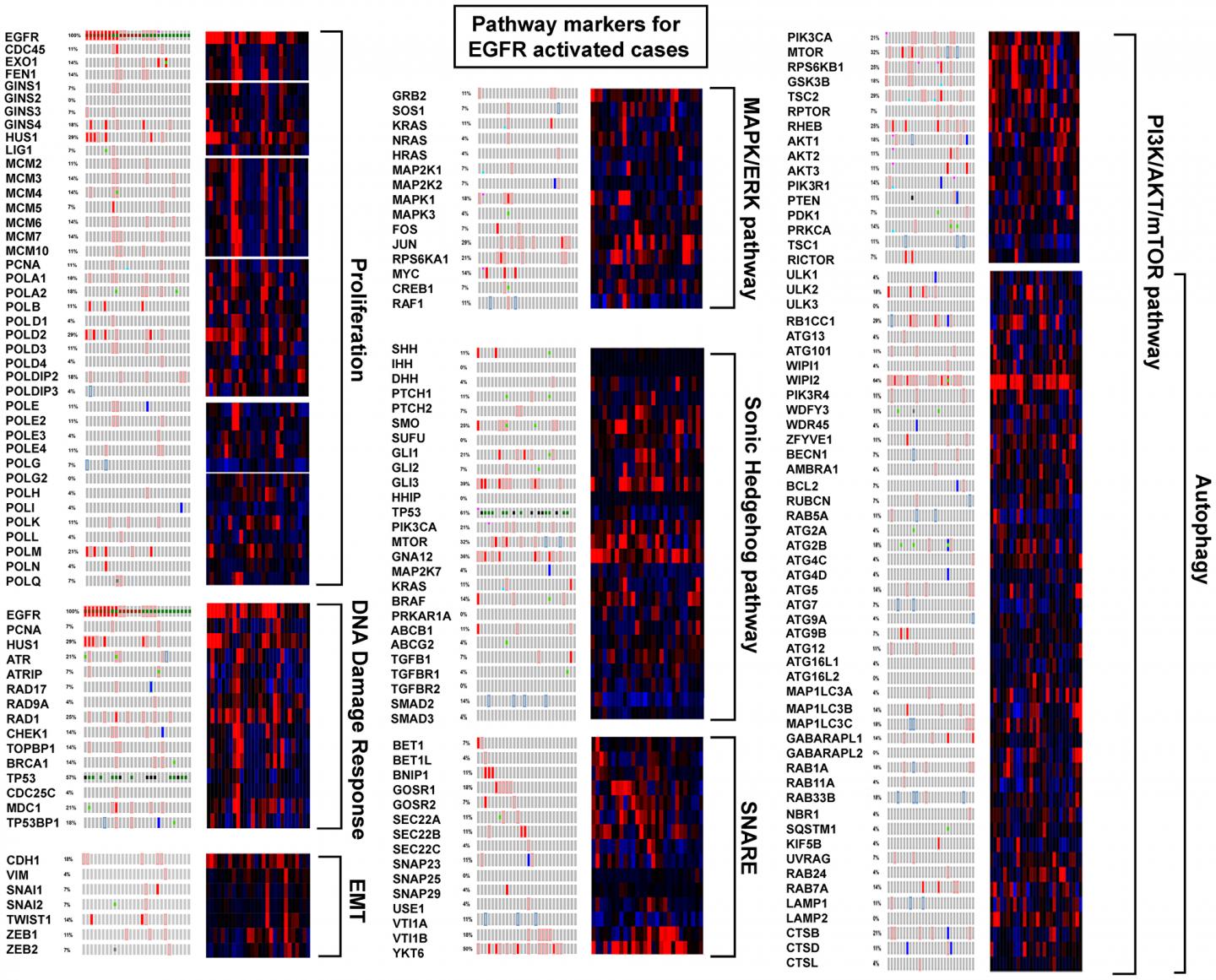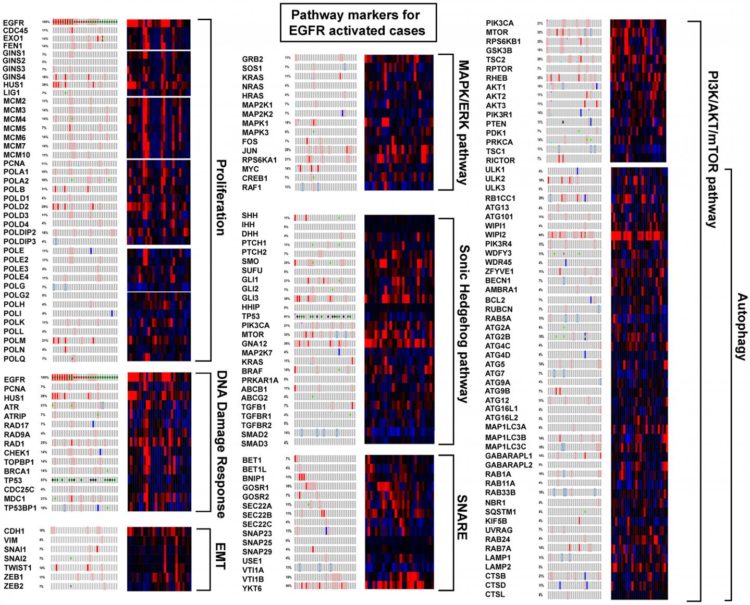The cover for issue 65 of Oncotarget features Figure 7, ‘EGFR activated cases compared to pathway markers,’ by Kucherlapati, et al.

Credit: Correspondence to – Melanie Haas Kucherlapati – [email protected]
The cover for issue 65 of Oncotarget features Figure 7, “EGFR activated cases compared to pathway markers,” by Kucherlapati, et al.
Molecular subtypes based on copy number, DNA methylation, and mRNA expression had variable proliferation levels, the highest correlating with decreased survival.
Significantly, results suggest EGFR over expression and activation are early alterations that likely stall the replication complex through PCNA phosphorylation creating replication stress responsible for DNA damage response and further mutation, but does not promote increased proliferation itself.
Dr. Melanie Haas Kucherlapati from the Department of Genetics at Harvard Medical School in Boston, Massachusetts, USA as well as the Department of Medicine, Division of Genetics at Brigham and Women’s Hospital in Boston, Massachusetts, USA said, “It is well established that cancer is the result of accumulated genetic changes to tumor suppressor genes or oncogenes, and that these changes lead to uncontrolled cellular proliferation.”
This study focuses on genomic and transcriptional changes to proliferation genes across a LUAD cohort created by The Cancer Genome Atlas, previously subtyped by them on the basis of copy number, DNA methylation, and mRNA expression.
The initial part of this study finds that subtype 2, 3, and 6 cases have highest expression of replication components and subtypes 1, 4, and 5 lowest; subtypes with highest expression have decreased survival.
The second part of this study unexpectedly found that levels of EGFR expression overall were inversely proportional to the expression levels of multiple other important proliferation factors across the TCGA LUAD cohort.
Among the group CLPTM1L, PBXIP1, and URGCP like EGFR while showing increased expression over the EGFR cohort, inversely correlated with the expression of multiple key replication proteins over total LUAD. YKT6, KLHL7, FAM220A, and VOPP1 also had increased expression over the EGFR cohort but directly correlated with high expression of multiple proliferation genes.
The Kucherlapati Research Team concluded that, when EGFR activated cases do metastasize, they target the brain at a much higher rate that non-EGFR activated cases.
###
Full text – https:/
Correspondence to – Melanie Haas Kucherlapati – [email protected]
Keywords – proliferation, mutation, transcription, EGFR, lung adenocarcinoma
About Oncotarget
Oncotarget is a weekly, peer-reviewed, open access biomedical journal covering research on all aspects of oncology.
To learn more about Oncotarget, please visit http://www.
Oncotarget is published by Impact Journals, LLC please visit http://www.
Media Contact
18009220957×105
[email protected]
Media Contact
Ryan James Jessup
[email protected]
202-638-9720
Original Source
http://www.
Related Journal Article
http://dx.





